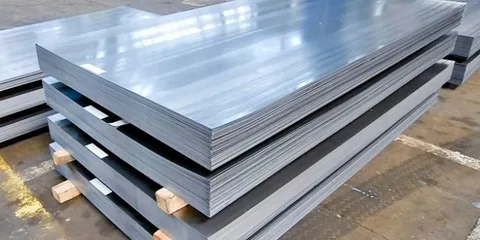Structural Integrity:
Alloy steel plates are the cornerstone of automotive structural integrity, forming the foundation for critical components such as chassis frames, body panels, and suspension systems. Their widespread use stems from the remarkable combination of strength and durability they offer. With a high tensile strength, alloy steel plates ensure that vehicles can withstand the diverse array of stresses encountered during everyday driving. Whether it’s supporting heavy loads in commercial vehicles or enduring the rigors of off-road terrain in SUVs, these plates provide a sturdy and reliable platform. Their resilience allows automotive engineers to design vehicles capable of withstanding impacts and maintaining stability, even under the most challenging conditions.
Crashworthiness:
In the pursuit of safe vehicles, alloy steel plates play a crucial role in enhancing crashworthiness. By strategically incorporating these plates into vehicle construction, engineers can improve the energy absorption capabilities of the structure during collisions. Reinforced pillars and impact-absorbing crumple zones are just a few examples of how alloy steel contributes to designing vehicles that meet stringent safety standards. In the event of an accident, the use of alloy steel helps to mitigate deformation and minimize the risk of injury to occupants. This focus on crashworthiness underscores the commitment of automotive manufacturers to prioritizing passenger safety and ensuring peace of mind for drivers and passengers alike.
Weight Reduction:
As the automotive industry embraces sustainability and fuel efficiency, the demand for lightweight materials has never been greater. Alloy steel plates offer a compelling solution by providing exceptional strength-to-weight ratios. By integrating these plates into key components such as body structures and suspension systems, manufacturers can achieve significant weight savings compared to traditional steel. This weight reduction not only improves fuel economy but also enhances handling and agility on the road. Drivers can enjoy a more dynamic driving experience without compromising on durability or safety, thanks to the innovative use of alloy steel plates in automotive design.
Heat Resistance:
Automotive components operating under high temperatures face unique challenges, requiring materials that can withstand thermal stress and corrosion. Alloy steel plates excel in these demanding environments, offering exceptional heat resistance and oxidation resistance properties. Whether it’s containing exhaust gases in a high-performance engine or housing turbochargers in a turbocharged vehicle, alloy steel ensures durability and longevity in critical engine components. By maintaining performance even in the harshest operating conditions, alloy steel plates contribute to the reliability and longevity of automotive systems, ensuring vehicles remain in peak condition throughout their lifespan.
Customization and Innovation:
The versatility of alloy steel plates fuels a culture of innovation and customization in automotive engineering. Engineers have the flexibility to tailor specialty alloys to meet specific performance requirements, allowing for optimized designs that prioritize efficiency, durability, and safety. Advanced manufacturing techniques such as hot stamping and laser welding enable precise shaping and joining of alloy steel components, opening doors to novel vehicle architectures and design concepts. From lightweight body structures that enhance fuel efficiency to innovative battery enclosures for electric vehicles, alloy steel plates serve as enablers of cutting-edge automotive technologies. By facilitating the realization of ambitious design goals, alloy steel plates drive progress in the industry and pave the way for the vehicles of tomorrow.
Alloy steel plate stand as indispensable materials in automotive engineering, facilitating advancements in performance, safety, and sustainability. From ensuring structural integrity and crashworthiness to enabling weight reduction and thermal resistance, these plates play a vital role in shaping the vehicles of today and the future. As automotive technology continues to evolve, alloy steel plate will remain at the forefront of innovation, driving the development of safer, more efficient, and more resilient vehicles for generations to come.



